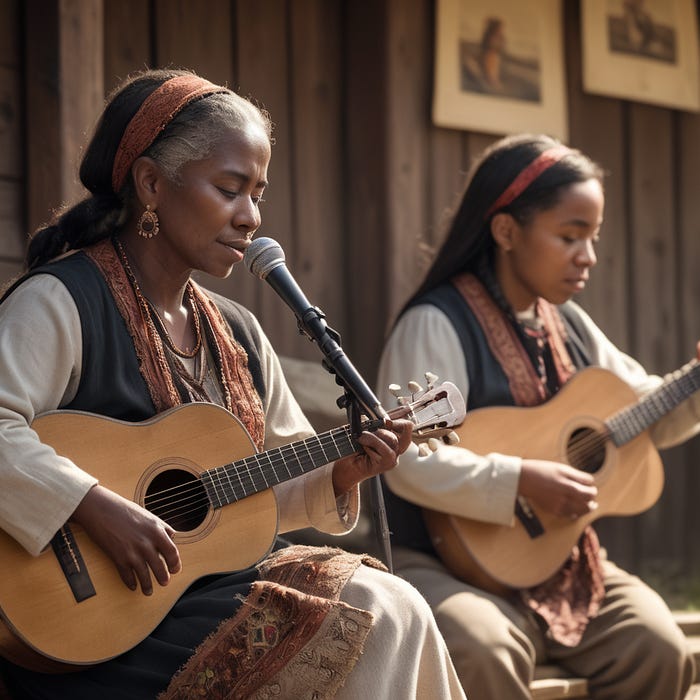Folk Music: Social and Political Activism
Folk music is a genre that spans across cultures and time periods, with a rich and diverse history.
The early roots of folk music can be traced back to various ancient cultures and civilizations, where music played an essential role in daily life, rituals, and storytelling.
These early forms of music often relied on simple instruments like drums, flutes, and stringed instruments, as well as singing and chanting.
In Europe, the early roots of folk music can be found in the traditional music of the Celtic, Nordic, and Slavic peoples. These musical traditions were passed down orally from generation to generation and often featured storytelling, work songs, and ceremonial music.
In America, the early roots of folk music can be traced back to the music of the indigenous peoples, as well as the songs and stories brought over by European settlers and enslaved Africans.
The blending of these musical traditions gave rise to distinct forms of American folk music, such as Appalachian music, blues, and gospel.
Here are some of the major talents in the modern era of folk music, both past and present:
Past:
Woody Guthrie (1912–1967) — An American singer-songwriter and folk musician, Guthrie was a key figure in the American Folk Revival movement. He wrote hundreds of folk songs, including “This Land Is Your Land.”
Joan Baez (1941-) — An American folk singer, songwriter, and activist, Baez has been a prominent figure in folk music since the early 1960s. She is known for her distinctive vocal style and her commitment to social justice causes.
Bob Dylan (1941-) — An American singer-songwriter, Dylan is widely regarded as one of the greatest songwriters of all time. His early work in the 1960s was rooted in folk music, and he has continued to incorporate folk influences throughout his career.
Pete Seeger (1919–2014) — An American folk singer and activist, Seeger was a leading figure in the American folk music revival of the 1940s and 1950s. He was known for his commitment to social justice and his ability to bring people together through music.
Joni Mitchell (1943-) — A Canadian singer-songwriter and musician, Mitchell is widely regarded as one of the most influential female artists in the history of popular music. Her early work was rooted in folk music, and she has continued to explore various musical styles throughout her career.
Present:
Ani DiFranco (1970-) — An American singer-songwriter and guitarist, DiFranco is known for her poetic lyrics and her commitment to social justice. She has been a major force in the contemporary folk music scene since the early 1990s.
Rhiannon Giddens (1977-) — An American singer-songwriter and musician, Giddens is a founding member of the Carolina Chocolate Drops, a Grammy Award-winning string band. She has been a prominent figure in the revival of traditional American music, including folk, blues, and old-time.
Laura Marling (1990-) — An English singer-songwriter, Marling has been a major figure in the contemporary folk music scene since the release of her debut album in 2008. She is known for her introspective lyrics and her captivating live performances.
Iron & Wine (Samuel Beam) (1974-) — An American singer-songwriter and musician, Beam has been a prominent figure in the indie folk scene since the early 2000s. His music is characterized by its intimate, acoustic sound and his poetic lyrics.
The Decemberists (2000-) — An American indie rock band from Portland, Oregon, The Decemberists are known for their intricate, literate songwriting and their eclectic mix of musical styles, which includes elements of folk, rock, and chamber pop.
The folk music revival of the 20th century, which began in the 1940s and continued through the 1960s, helped to popularize and preserve many of these early folk music traditions.
This revival was driven by a desire to reconnect with the past and to use music as a means of social and political activism.





